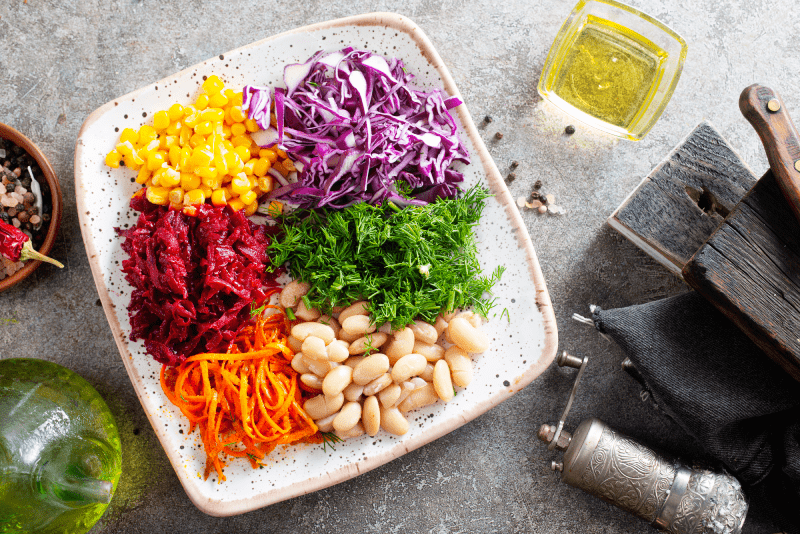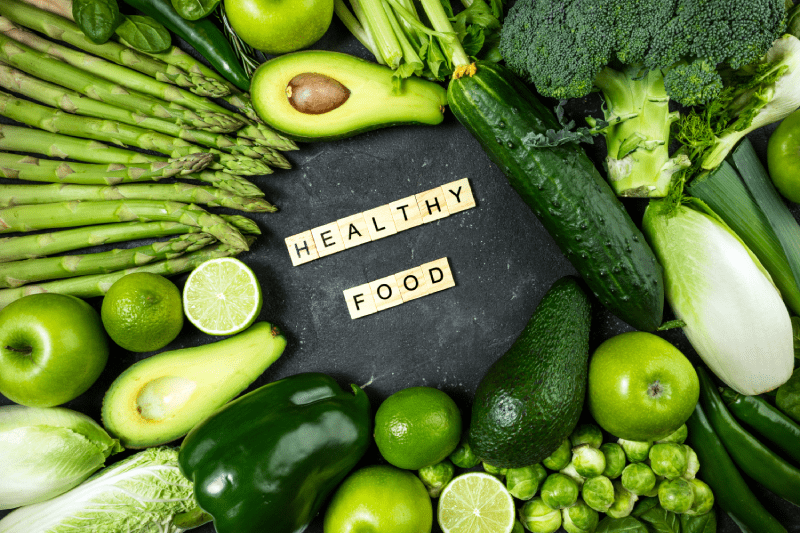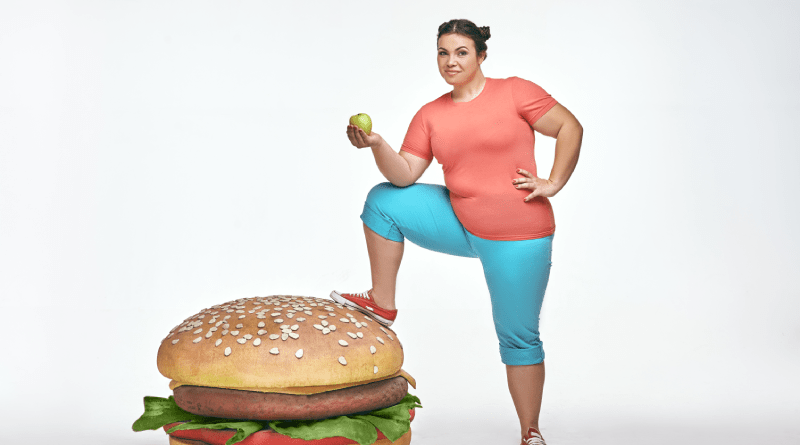Nutrition After Gastric Sleeve – Nutrition After Gastric Sleeve Surgery Sample Menu
Why Is It Important To Pay Attention To Nutrition After Gastric Sleeve?
Gastric sleeve surgery, also known as sleeve gastrectomy, is a weight loss procedure that involves removing a portion of the stomach to reduce its size. While this surgery can be an effective way to achieve significant weight loss, it can also result in nutritional deficiencies if adequate attention is not paid to nutrition after the surgery.
After gastric sleeve surgery, the stomach is significantly reduced in size, which means that patients can only eat small meals. This reduced food intake can make it difficult to obtain all of the necessary vitamins, minerals, and other nutrients that the body needs to function properly.
To prevent nutritional deficiencies and promote overall health after gastric sleeve surgery, it is essential for patients to pay close attention to their nutrition and dietary intake. This may include working with a registered dietitian or nutritionist to develop a personalized meal plan that meets your nutritional needs.
A well-balanced diet after gastric sleeve may include lean protein sources, such as fish, chicken, and beans, as well as fruits, vegetables, and whole grains. Patients should also focus on consuming nutrient-dense foods that provide a variety of vitamins and minerals. Furthermore, adequate hydration is also important, so patients should be encouraged to drink plenty of water and avoid sugary drinks.
In addition to dietary changes, patients may also need to take supplements after gastric sleeve surgery to ensure adequate nutrient intake. This may include a daily multivitamin, as well as additional supplements such as calcium, vitamin D, and iron, depending on the patient’s needs.
By paying attention to nutrition after gastric sleeve surgery, patients can minimize the risk of nutrient deficiencies and promote overall health and wellbeing. It is important for patients who have undergone gastric sleeve surgery to work closely with their healthcare provider, registered dietitian, or nutritionist to develop a personalized plan that meets their individual nutritional needs.
If you are planning to have gastric sleeve surgery, Turkey is one of the best destinations for it. With our expert dietitian and bariatric surgery staff, we can offer you gastric sleeve surgery in our reliable and state-of-the-art hospitals in Turkey. Tk what you need to do is contact us for more details.

How to Eat After Gastric Sleeve Surgery?
Gastric sleeve surgery, also known as sleeve gastrectomy, is a weight loss procedure that involves removing a portion of the stomach to reduce its size. After the surgery, it is important to adopt a healthy and balanced diet to promote healing and prevent nutritional deficiencies.
After the surgery, it is recommended to eat small, frequent meals throughout the day. Foods should be soft and easy to digest, to minimize discomfort and promote healing of the gastric mucosa. Patients should also eat slowly and chew each bite carefully to avoid nausea and vomiting.
The post-operative diet should be high in protein, as this helps promote healing and tissue repair. Sources of protein can include lean meats, eggs, vegetables, nuts, and low-fat dairy products. Patients can also drink protein shakes to increase their protein intake.
It is recommended to avoid foods that are high in fats, sugars, and salt, as these can cause nausea and increase the risk of weight regain. Patients should also avoid foods that are difficult to digest, such as red meats, spicy and fried foods, and high-fiber foods.
Patients may also need to take vitamin supplements to prevent nutrient deficiencies, especially in vitamins B, C, D, E, and iron. Patients should discuss with their doctor or dietician to determine which supplements they should take. As Cureholiday, we provide post-operative online nutritional support to our patients who have had Gastric Sleeve surgery. You can send us a message to lose weight in a healthy way with Gastric Sleeve surgery.
Patients should drink plenty of liquids to prevent dehydration, especially water, tea, and unsweetened beverages. Patients should avoid carbonated beverages, sugary juices, and alcohol.
In conclusion, a balanced diet is essential after gastric sleeve surgery to promote fast healing and prevent nutritional deficiencies. Patients should follow a diet that is high in protein, avoid difficult-to-digest foods, and take vitamin supplements if necessary.
Nutrition Plan After Gastric Sleeve Surgery
During the first few days after surgery, the patient will gradually transition from a clear liquid diet to a pureed food diet. Pureed foods, such as mashed potatoes, yogurt, or soup, should be soft and easy to eat. It is essential to eat small, frequent meals throughout the day and avoid overeating or consuming large meals that may cause discomfort.
After the first few weeks, the patient will move to a soft food diet, which includes soft and cooked foods that are easier to digest. This may include eggs, fish, vegetables, and soft fruits. Patients should still avoid foods that are high in fats, sugars, and salt.
Once the patient is fully healed after a few months, they can begin to incorporate more solid foods into their diet gradually. It is important to eat slowly and chew food thoroughly to avoid discomfort and promote digestion.
After gastric sleeve surgery, it is important to consume foods that are high in protein, such as lean meats, fish, eggs, and low-fat dairy products. Protein helps the body to build and repair tissues, and also helps to maintain muscle mass while reducing body fat.
Patients should also eat foods that are high in fiber, such as fruits, vegetables, whole grains, and legumes, as this can help promote satiety, prevent constipation, and reduce the risk of hunger and overconsumption.
It is important for patients to avoid foods that are difficult to digest, such as red meat, high-fat or fried foods, spicy foods, and carbonated beverages. Patients should also avoid consuming fluids with meals, as this can interfere with digestion and may cause nausea.
In addition to following a healthy and balanced diet, patients may need to take vitamin and mineral supplements, such as calcium, vitamin D, and vitamin B12, to prevent nutritional deficiencies.



Which Vitamins Are Used After Gastric Sleeve Surgery?
Bariatric surgery, also known as weight loss surgery, is a medical procedure that alters the digestive system to help individuals achieve long-term weight loss results. While this procedure has proven to be effective for weight loss, it can also result in nutrient deficiencies due to the reduced intake and absorption of food. As such, vitamin and mineral supplements are often recommended for those who have undergone bariatric surgery.
Vitamin supplementation after bariatric surgery is crucial for a number of reasons. Firstly, it ensures that the body is receiving adequate amounts of essential nutrients that may be lacking from the diet. This can include vitamins A, D, E, K, B12, as well as minerals such as calcium, iron, and zinc. Vitamin and mineral deficiencies can contribute to a variety of health problems, including anemia, osteoporosis, and nerve damage.
The specific vitamin supplementation needs of each patient may vary depending on their specific type of bariatric surgery, as well as their overall health and lifestyle factors. Most commonly, bariatric surgery patients are advised to take a daily multivitamin supplement that contains a variety of essential vitamins and minerals.
In addition to a daily multivitamin, specific vitamin and mineral supplements may be recommended based on the individual’s needs. For example, patients who have undergone a gastric bypass may require additional calcium and vitamin D supplementation, as this surgery can result in decreased absorption of these nutrients. Similarly, patients who have undergone a sleeve gastrectomy may benefit from additional iron supplementation due to the reduced absorption of iron from food.
It should be noted that vitamin supplements are not a substitute for a healthy diet, and bariatric surgery patients should focus on consuming a nutrient-dense diet that meets their specific needs in addition to taking supplements. Proper adherence to a vitamin and mineral supplement regimen, combined with a healthy diet and regular exercise, can help bariatric surgery patients maintain their health and wellbeing in the long term.
In summary, vitamin and mineral supplementation after bariatric surgery is a critical aspect of post-operative care. By working closely with their healthcare provider and following a prescribed supplement regimen, bariatric surgery patients can minimize the risk of nutrient deficiencies and support their overall health and wellness.

Nutrition Sample Menu After Gastric Sleeve Gastrectomy
Gastric sleeve gastrectomy is a surgical procedure that helps individuals achieve significant weight loss by reducing the size of their stomach. After undergoing a gastric sleeve surgery, it is essential to follow a healthy and balanced diet to ensure adequate nutrition for the body. In this article, we’ll provide a sample menu of recommended foods for individuals who have had a gastric sleeve gastrectomy.
Post-Surgery Nutrition Guidelines
Following a gastric sleeve gastrectomy, individuals must follow specific dietary guidelines to aid in recovery and promote proper healing. These guidelines include:
- Consume a high-protein diet: Proteins play a crucial role in building and repairing tissues and muscles in the body. After surgery, it is essential to include protein-rich foods in the diet to help aid the healing process. Foods high in protein include lean meats, fish, eggs, dairy, nuts, and legumes.
- Consume enough fluids: It is essential to stay hydrated after surgery. Drinking adequate water and fluids will help promote healing and prevent dehydration. Avoid carbonated and sugary beverages as they might irritate the stomach.
- Eat small and frequent meals: After surgery, the stomach’s size is reduced, and it can only hold a small amount of food at a time. Eating small, frequent meals can help prevent overeating, promote healthy digestion and nutrient absorption.
- Avoid high-fat foods: High-fat foods can cause discomfort and upset stomach after surgery. These foods include fried foods, heavy creams, oily sauces, and fatty meats.
Sample Menu After Gastric Sleeve Gastrectomy
Below is a sample menu that provides an idea of what a healthy and balanced diet after gastric sleeve gastrectomy could look like.
Breakfast:
- 1 scrambled egg or 1 slice of whole-grain toast
- 1 small low-fat yogurt
- 1 cup fresh fruit
Snack:
- 1 small apple or pear
- ¼ cup mixed nuts
Lunch:
- 3 oz grilled chicken breast
- 1 small roasted sweet potato
- ½ cup steamed broccoli
Snack:
- 1 low-fat cheese stick
- 1 small handful of whole-grain crackers
- Sugar-free Jell-O
Dinner:
- 3 oz grilled salmon
- ½ cup quinoa
- 1 cup roasted vegetables
Snack:
- ½ cup sliced fruit
- 1 tbsp almond butter

